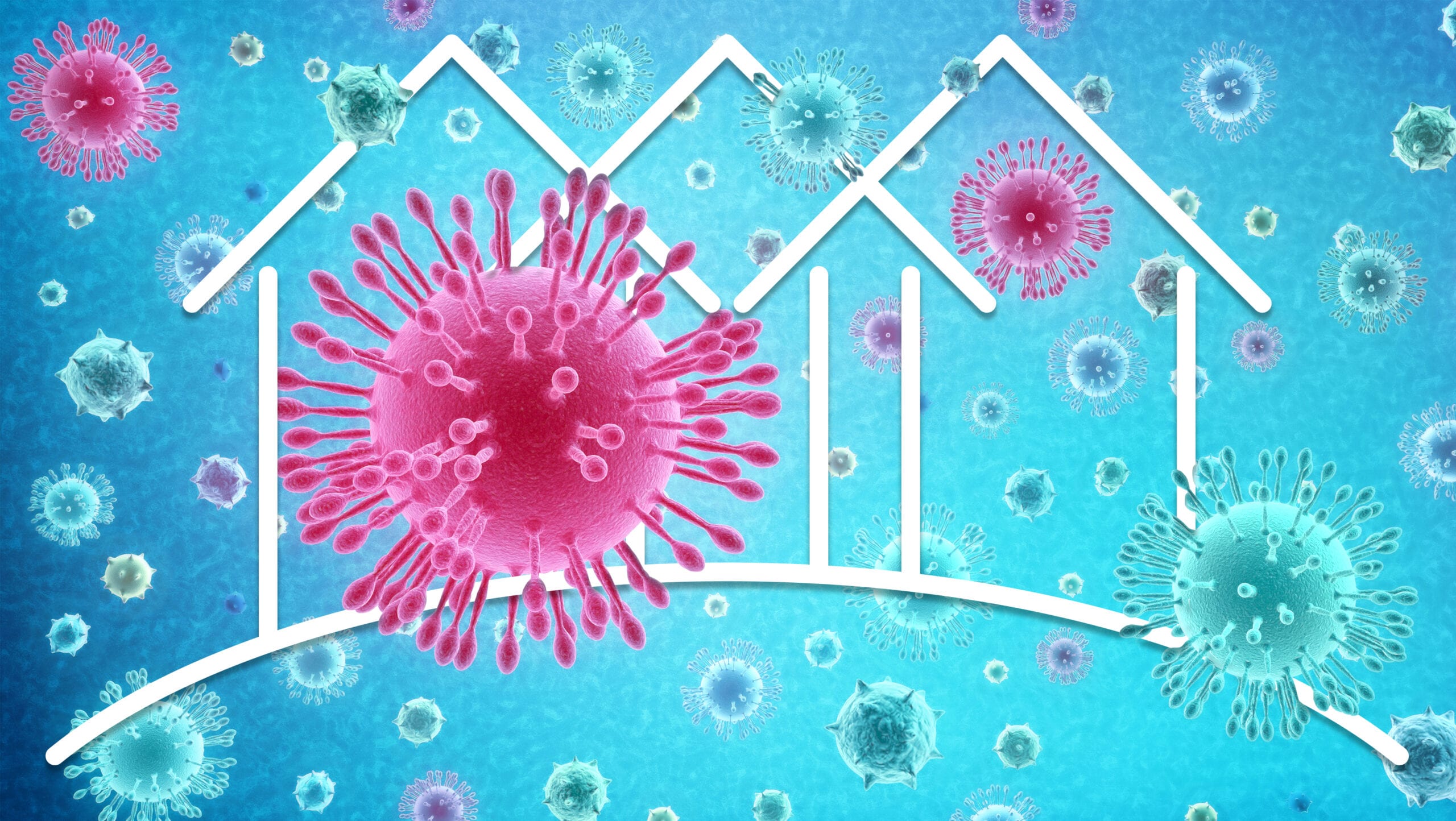Come look behind the scenes with “Inside Xtra.” Get to know how we work and make decisions in our newsroom. Join the conversation. Help us build an even better Xtra.
Starting Mar. 16, Xtra’s publisher Pink Triangle Press will shut down its offices for two weeks and all employees will work from home. In light of the recommended precautions to slow the transmission of COVID-19—now classified as a pandemic—we’re taking this step for the safety of our staff and our broader communities.
Our offices are in Toronto, where it was just announced that public schools will be closed until early April; as of Mar. 13, there were 41 positive cases of COVID-19 being monitored by the city’s public health officials and four other confirmed ones, in which the patients have since recovered. Across the country and around the world, as the global number of coronavirus cases rose above 125,000 people in more than 115 countries and thousands have died, there is a urgent, unanimous call from medical experts to implement social distancing measures: Encourage people to work from home, cancel travel plans, postpone public gatherings, concerts and conferences, close schools, avoid public transit and otherwise minimize contact with others.
The aim is to “flatten the curve”—to slow the spread of the virus so that healthcare systems aren’t overwhelmed by a spike in cases and the sickest can get the care and attention they need. Taking aggressive measures, like mass testing, social distancing, restricting people’s movements and shutting down businesses, schools and places where large groups gather have proven to be successful in containing the virus in nations like China, Singapore and Nepal. And in North America, major sports leagues have now suspended their seasons, tourist attractions have closed down and festivals have been cancelled. There are serious economic consequences to this approach in lost wages and lost jobs—we don’t yet know the full scope of this impact. But this is the best tool we have right now in addressing the pandemic and helping to save lives.
At Xtra, we remain committed to serving you wherever our desks happen to be, and we’ll still produce all the great content you expect from us. Our editors and producers are currently hard at work on stories about the impact of COVID-19 on LGBTQ2 people to ensure you have the best information about the virus. We recognize that you might also need some motivation and entertainment in these strange and stressful times, so you’ll continue to find all your favourite content here, from our Inspired video series to our “Ask Kai: Advice for the Apocalypse” column to Kevin O’Keeffe’s Drag Race reviews and more. And if there’s anything you want to see covered, reach out with your suggestions at inside@xtramagazine.com.
In this anxious time, I’ve found solace and guidance in remembering that our community has been here before. We know what it means to come together in the face of a terrifying global pandemic. AIDS is, of course, very different from COVID-19. AIDS, which is bloodborne, is not as readily transmitted as airborne coronaviruses, and AIDS has been far more fatal. But there are many similarities in some of the social, cultural and political responses to both viruses. Stigma. Panic. Moral judgement. Fear of the Other.
Addressing American citizens in a televised statement earlier this week, President Donald Trump referred to COVID-19 as a “foreign virus” and many right-wing conservatives in the U.S. have called it “Chinese coronavirus.” This labelling is a deliberate, racist scapegoating of Asian people; it occurred during the SARS outbreak, as well. Trump has suspended air travel from Europe for 30 days, a move that makes no medical sense (the virus is already in America) but further serves his agenda of xenophobia and isolationism.
During the height of the AIDS crisis, certain groups were also made into pariahs: Gay men, intravenous drug users, people from Haiti and parts of Africa. In the early years of the pandemic, many hospitals rejected AIDS patients while funeral homes refused to take the bodies of those who died. In 1987, the U.S. issued a travel ban on those who had tested positive for HIV. The ban stood for 22 years, until then-president Barack Obama ended it in 2009, saying the restriction was “rooted in fear rather than fact.”
Health crises, acts of terror and other catastrophes have long been used to amplify bigotry and seize control over vulnerable people. In her book The Shock Doctrine, Naomi Klein tracks the long history of governments and companies exploiting people’s disorientation following a trauma like a war or a natural disaster. And so, as we take thoughtful, medically-sound precautions to contain the spread of COVID-19 by isolating ourselves, we should also keep this history in mind. How do we balance public safety with compassion? How do we ensure that measures such as quarantines don’t overreach into stripping people of their rights? How do we protect our valuable and public spaces and institutions, like schools, libraries, theatres and parks, that are now being shut down or avoided?
One important lesson comes from how our communities survived the AIDS crisis: By building a movement and network of support that advocated for those with HIV/AIDS and also more broadly expanded the visibility, rights, freedoms and protection of LGBTQ2 people—ultimately and utterly transforming our communities for the better. A few nights ago, I rewatched David France’s powerful 2012 documentary How to Survive a Plague, about the early years of AIDS activism in New York. The subjects were brave and resourceful, angry and creative. The history-changing energy of the movement is palpable in every scene. I was struck by how physical everyone was: Touching, hugging, marching with linked arms, squeezed into crowded meeting rooms; hands gently massaging ointment onto backs riddled with kaposi sarcoma lesions or changing the soiled linens of patients in hospices; established couples and complete strangers protesting homophobia and AIDS-phobia by making out with abandon at kiss-ins.
These flamboyant, ostentatious, tender acts of physical contact were deliberate. People with AIDS were portrayed as vectors of disease, as human trash, even—one doctor recalls that the bodies of the dead in some New York hospitals were tossed into garbage bags. One way to combat this was through touch. Not only was it a comfort to the ill and dying, it was a sign of humanity, self-love and community care. When no one else would hold us, we would hold each other. And when some authorities, and even members of our own community, suggested shutting down bars and bathhouses to prevent transmission, many fought back. To close these hard-won havens of connection and celebration would be its own kind of death. It would be akin to admitting that it wasn’t a disease that was killing us, but our own desire and community. Where these spaces did remain open, they became important centres of safer sex education and support. Connection saved us.
In this case, though, the necessary precautions for COVID-19 have stripped us of touch—and perhaps this is what concerns me the most, even as much as the fear of becoming sick. Our natural instincts to care for one another are thwarted by the one metre perimeter we’ve been told to maintain around ourselves. Keeping our distance is the healthiest thing we can do, but it feels the least humane. Members of our communities are already so isolated; what will it mean for our wellbeing to lose our already precious opportunities for personal connection?
In these upcoming uncertain days, we will need to be creative about how we care for one another, so we don’t lose our sense of touch and we don’t lose who we are. People are stepping up: Folks are delivering groceries to neighbours too scared to leave home, newspapers are lifting paywalls on coronavirus content, people are donating money to food banks and calling their political representatives to advocate for rent relief for those economically affected by COVID-19. Even Twitter seems to be a slightly nicer place these days.
COVID-19 has already laid bare, as disasters often do, the inequalities in our societies. Indigenous people on reserves with boil-water advisories can’t follow the precaution of frequent handwashing. Children living in poverty will be deprived of free lunches when their schools are shuttered. Freelancers and gig economy workers will lose wages and even their jobs, and they won’t have the net of unemployment insurance.
As we hunker down in our personal bunkers, ritually dipping ourselves in hand sanitizer, maybe we can use this time of solitude to be more cognizant of those inequalities, and to dedicate ourselves to helping to fix them. Perhaps in keeping apart for a while we will recognize how important it is to be better to each other when we’re together once again. Until then, stay connected online to Xtra, to your friends, to your neighbours and chosen family. And remember: You’re not alone.


 Why you can trust Xtra
Why you can trust Xtra


